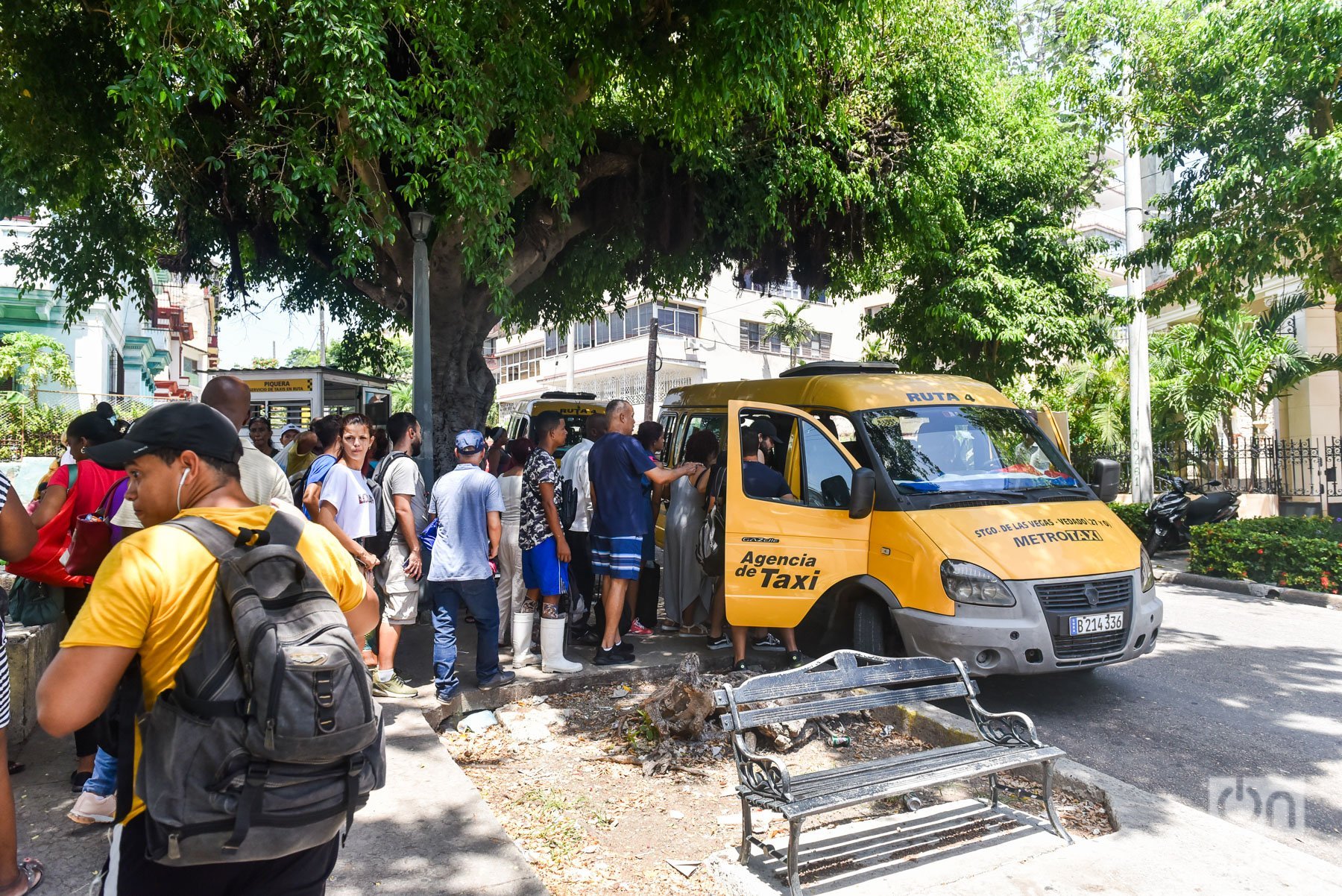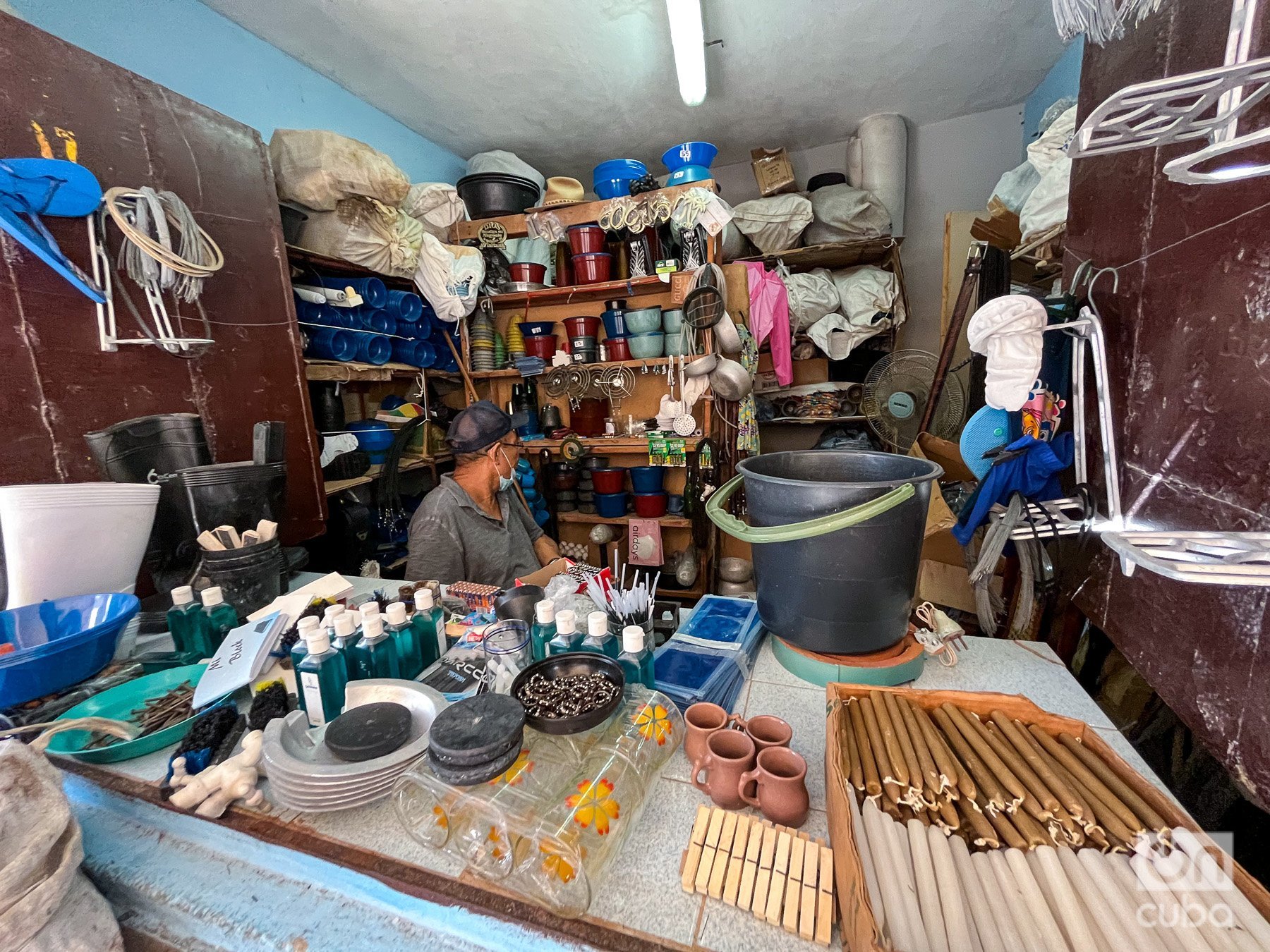Silvio Rodríguez’s Segunda Cita blog has recently given space to a debate on the conceptualization of Cuban socialism and its application in Cuba. Articles by Fidel Vascós, Antonio Díaz Medina, Jesús Arboleya and Silvio himself have addressed the need to review the very concept of socialism and its foundations.
In his article published on July 14, Jesús Arboleya makes three crucial statements: reforming Cuban socialism is needed; making popular democracy effective, the only resource to impose the power of the workers; and there is no other alternative than to function in many cases with instruments inherited from capitalism.
Based on the first, the attempts to reform the Cuban model are now more than 30 years old, and despite its inconsistencies — not even the word “reform” is authorized in the official discourse — and incoherencies, much more progress has been made than we sometimes admit
A visit to the last 2nd Local Development Fair in Havana demonstrates this: nothing that was exhibited there existed barely two years ago, neither Local Development Projects, nor private and state micro, small and medium-sized enterprises (MSMEs), nor products and services that have long since disappeared from the state retail offer. It is not surprising that the Fair provoked the visit to the pavilions of ministers and functionaries of the Party and of provincial and municipal governments.
But unquestionably, there is still a lot of resistance to change, a lot of “negative subjectivity” especially with any measure that “smells” of capitalism, particularly the opening to the private sector.
Internal control, regulatory, banking and government institutions seem to be more concerned with controlling than facilitating business and entrepreneur initiatives.
For example, today bank transfers to SME accounts — which constitute a contribution to the long-awaited foreign investment — are delayed in a department of the Central Bank for “illicit transactions” pending investigation of both the sender and the recipient of the funds. Thus, opportunities to purchase equipment, inputs, construction, production are lost, when we need it most.

In the same way, little progress has been made in labor democracy, the participation of workers in the decision-making of the state enterprise, partly due to the rigidity of the institutions that should promote them — particularly the unions, contrary to confronting the administration in defense of the demands of the workers — and of the vertical structures of the enterprises, inherited from capitalism first and from real socialism later.
There is no ministry or higher business management organization (OSDE) willing to cede the appointment of enterprise directors to the election of the workers, not even to their scrutiny or approval. They are designated and that’s it. Business economic and financial transparency is almost nil; opacity is presented as a necessity for the protection of national security, even when it is not at risk.
But the instruments inherited from capitalism do not necessarily have to be negative or antagonistic to socialism. Within the very capitalist systems — because there is not just one — defense mechanisms for workers, consumers, and the environment have been developed since their inception.
The first cooperative that emerged in England in the 19th century was for consumption: workers who came together to buy food in the wholesale market and sell it to each other at fair prices, to get rid of the “patron’s shops” that double exploited them.
Struggles, movements, institutions, legislation, and currents of thought developed throughout the 20th century. They have helped put limits on the excesses of the market and create alternatives to fierce capitalism, to individualism, in favor of workers, communities, and human values.
Social economy is a polysemous concept: market social economy, solidarity social economy, economy of the common good, economy of communion, plural economy of good living, labor economy…
None of them seek to overthrow capitalism, but they do seek to moderate it, protect its victims — including the environment — and ultimately preserve it, which they have effectively done for more than a century.
Examples abound. Large corporations have embraced corporate social responsibility (CSR), which, although it serves to clean up the negative image of many — contamination, exploitation — does not stop exposing them to scrutiny and producing social benefits.
An important foreign investor in Cuba, for example, complying with his CSR policy, has made significant donations to various communities in the country where he operates, in coordination with local governments that set priorities. He was unable, however, to get the joint venture in which he participates as a minority partner with the Cuban State to deploy its own policy of corporate social responsibility.
In Ecuador, during the government of the Citizen Revolution, the Popular and Solidarity Economy was incorporated into the Constitution, it was legislated as law, it was institutionalized and its benefits were extended to the entire country, for the benefit of small businesspeople, self-employed workers, indigenous peoples, collectives of women and communities grouped in cooperatives. In Cuba there is still no legal framework for the social and solidarity economy.
In Argentina, the movement of recuperated enterprises mobilized laid-off workers to occupy their factories and warehouses and operate them collectively, confronting the former owners and the laws that protect private property.
In Brazil, garbage collectors have organized themselves into recycling cooperatives; in Cuba, the recycling “business” is in the hands of a single enterprise that purchases raw materials, with a network of inefficient purchasing houses. Only three were authorized to become cooperatives, out of 17 planned, and they continue to be handcuffed by the enterprise itself.
In the Bronx, New York, nurses and caregivers created a cooperative of more than 2,000 women, which cares for thousands of elderly and disabled people who pay with their pensions and retirements. In Cuba, the first care cooperative has not been authorized; when a retired doctor and nurse couple requested to create a care home for the elderly, taking advantage of a disused facility, the government of the Havana municipality where they live denied them permission.
In Trentino, the dolomitic region of northern Italy, a cooperative from a developed country capable of being one of the great international players in the wine world operates. It continues to put its emphasis on social cooperation, its strong territorial component, the solidarity force between the participants, sustainable development and mutual aid.
However, in Cuba, the country and system where these social and solidarity initiatives could best be deployed, where they would solve labor and social problems at the local level and with endogenous resources, relieving the burden of the central government, where they would help to implement the strategies of municipal and community development, where they would be, ultimately, a decisive contribution to the construction of socialism, these initiatives fail due to the “state bodies of reference,” or are left to spontaneity, considered by many “instruments of capitalism not suitable for socialism.”
That is why we only have producer, agricultural, industrial and service cooperatives, and we do not have of consumers, caregivers, housing, renewable energy, savings and credit, as there are in all of Latin America.
The law does not allow these forms of cooperatives and the government hardly promotes the types allowed. Proof of this is that, since September 2021, when the law was approved that for the first time since 1968 allowed the creation of private and state-owned MSMEs, and a new law for non-agricultural cooperatives (CNA) — the name itself reflects the negative or superfluous meaning that reigns in the official and popular social representation of these industry and service cooperatives — only about 60 CNAs have been established, while more than 8,300 MSMEs, mostly private, have been approved.
These data are not surprising because we know that since the emergence of the CNAs in 2010, most ministries saw it as an opportunity to hand over the administration of their enterprises and unprofitable units to their workers, who neither requested nor were prepared for it, as “cooperatives.” And in all cases they maintained the control mechanisms, thus violating the basic principle of cooperative autonomy.

Sixty-seven percent of the 498 originally approved were thus induced, against 23% that arose from the base, of women and men who truly wanted to be cooperative members. Many more requested it, but were not approved as it was among the activities prohibited to workers in the non-state sector. Some never came to operate, many went bankrupt or dissolved, and at least five have decided in the last year to dissolve and continue as private MSMEs, protected by Decree Law 46/2021 on MSMEs that facilitates the conversion of cooperatives to MSMEs while the DL 47/2021 does not establish a conversion process from MSMEs to cooperatives.
At the end of 2022, there were 5,137 cooperatives in Cuba, according to ONEI data: 218 fewer than in 2017, and 1,427 fewer than the number of MSMEs approved in just 16 months. Of these, 2,430 are Credit and Services Cooperatives (CCS), 839 Agricultural Production Cooperatives (CPA), 1,349 Basic Units of Cooperative Production (UBPC) and 474 Non-Agricultural Cooperatives (CNA).
The cooperative sector employs half a million Cubans, while the private sector employs twice as many, compared to almost three million employed in the state sector (ONEI, 2023). So many Marxists and they forget the phrase of V.I. Lenin: “the regimen of educated cooperative members is socialism.”
It is not about vilifying MSMEs. Undoubtedly, the process of creating MSMEs has been positive for the country, 19.6% carry out manufacturing activities, 12% produce food and beverages, 4.6% are trade; they employ 225,000 people, of which 189,000 are new jobs (Figueredo, 2023). And examples of corporate social responsibility in the private sector abound, although perhaps not the majority.
The emergence of new private and cooperative ventures created a new possibility for these actors to participate in the socioeconomic and sociocultural development of the communities and at the territorial level. A new stage of opportunities opened, not without difficulties.
Based on the application and extension of the principles of cooperativism, which includes responsibility towards members and commitment to the community, the solidarity idiosyncrasy of the nation has ended up shortening distances.
In 2020 we witnessed how many Cuban entrepreneurs responded to the challenge of preventing the spread of the new coronavirus, by putting their business in tune with the measures that the situation demanded. This attitude is not surprising, since for several years now entrepreneurs have demonstrated the social values with which their businesses have been developed.
They had shown it before, with their involvement in the recovery from the disasters caused by Hurricane Irma, the tornado that hit Havana in January 2019, and they would show it later, when Hurricane Ian affected the western provinces in 2022 and the heavy rains from 2023 by the eastern ones. In various private businesses, empirically or consciously, the postulates of Corporate Social Responsibility are applied and developed.
The productive chain with the state sector is a window that has had its opening and institutional support, starting from the first months of the country being affected by COVID-19. Programming, the development of software and applications for mobile devices, from self-employment, has gone ahead in this stage of the pandemic to close agreements and establish alliances with the state sector.
We also have the concretion of alliances between various forms of work in the Cuban technological sector, in tourism and in services. Throughout the country, the state gas stations that sell fuel paid in Cuban pesos (CUP), the state stores of products sold in freely convertible currency and the cafeterias and stores leased by MSMEs that sell to motorists and passengers coexist.

In the words of researcher Ileana Díaz, “socialism is not at odds with the mixed economy, that is, the existence of different forms of ownership. It is pertinent that, instead of marginalizing them, they be involved in the construction of socialism, that the articulation with state forms be encouraged. Non-state actors today contribute to the economic and social sustainability of our socialism, but it is the state sector that must be strengthened to lead it.”
The social and solidarity economy serves as a motor for local development, by articulating the different forms of ownership, communities and knowledge workers such as universities and Municipal University Centers, under the strategic leadership of the local government.
Many of the social and solidarity economy entities are rooted in their communities, where they play an essential role in sustainable development and local governance. It makes it possible to make better use of resources, increase exports, reduce imports, restore the environment, increase local resilience and territorial identity. The social and solidarity entities were pioneers in promoting the circular economy by moving from productions with large emissions and waste, to systems that use their residuals and resources in a more efficient and sustainable way, while saving natural resources and protecting the ecosystem.
We need to promote social and environmental responsibility if we want the ideology of capitalism not to be reproduced in the private and cooperative sector. We need to strengthen and democratize the socialist enterprise; promote genuine cooperatives, civil society associations and budgeted institutions such as universities; promote the scientific and technical development of all forms of ownership; and promote alliances to carry out inclusive local development projects.
Many of these tools were originally developed, in one form or another, in capitalist countries and market economies. Instruments inherited from capitalism, but not incompatible with socialism. Adopting and adapting them to the Cuban model is a challenge to Cuban innovation and creativity and a contribution to the construction of a sustainable, democratic and solidarity socialism.










